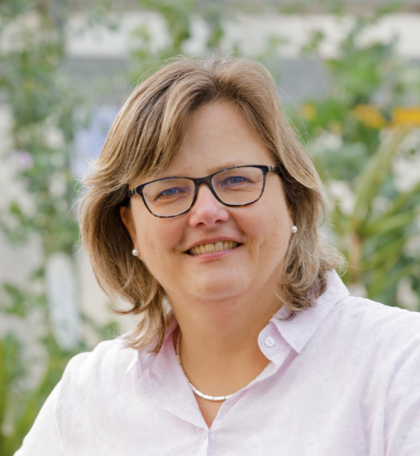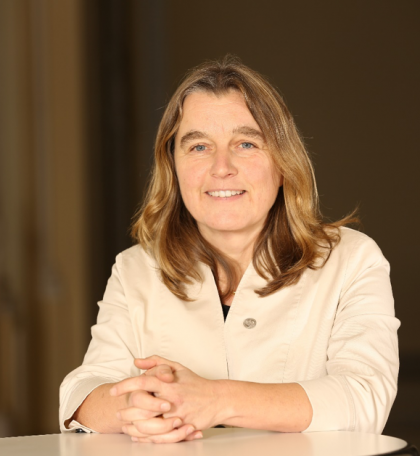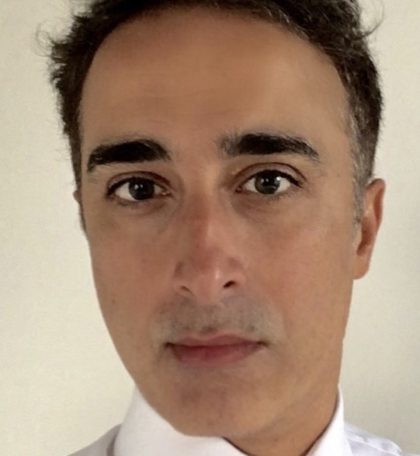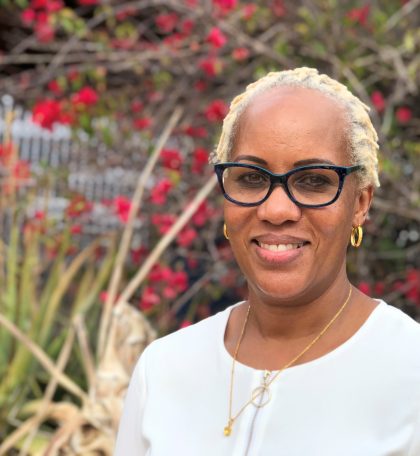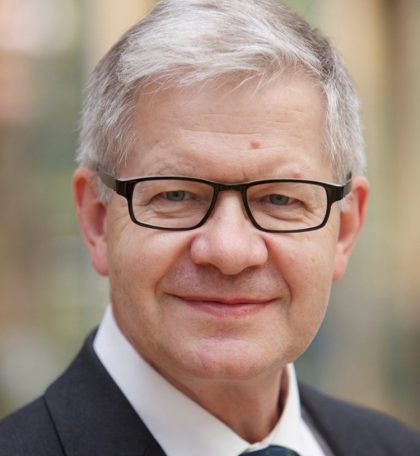How to shape education for a sustainable bioeconomy?

Timing: November 16, 4-6 p.m. (CET) and November 18, 8-10 a.m. (CET)
The same workshop format will be held twice, to cover all world regions.
Contents
Output
Workshop Recording
Workshop Summary
Workshop Presentations
You can download the presentations from this workshop by clicking on the links:
Subworkshop D: Interfacing Industry requirements, Megatrends and Bioeconomy Education: Top-down and bottom-up movers and drivers
Presentation 1
Presentation 2
Organizers
European Bioeconomy University (EBU) and European Community of Practice for Bioeconomy Education (CoP Bio-Ed)
German Association for Synthetic Biology (GASB)
Center for Synthetic Biology of the TU Darmstadt
Swiss Coordination Committee Biotechnology (SKB)
Further collaborators:
BioEast, UNESCO, Association of European Life Science Universities (ICA), Dutch Biobased Knowledge Network, Asian Association of Agricultural Colleges and Universities (AACU), Regional Universities Forum for Capacity Building in Agriculture (RUFORUM, Africa)
Chairs
IAC Support
Thematic focus
The circular sustainable bioeconomy (CSB) requires interdisciplinary cooperation in the workforce to address the scientific, technical, economic and social challenges of our times. Appropriate tertiary education programmes need to combine the provision of disciplinary, inter-, and transdisciplinary cross cutting competences with the conveyance of systems thinking and creativity for new solutions. The range in education institutions at the national level have valid differences in their mission for delivering the range in workforce expertise required in the CSB. Such differences can also be identified between regions and globally and need to be considered when planning educational programs. In this workshop the different skills requirements for the future CSB experts are discussed along with educational formats to convey and combine required skills sets.
The objectives of this workshop are:
- Initiation of multinational collaborations to share and promote further education, training, and capacity building approaches for the future bioeconomy.
- Identify required combination of interdisciplinary and hard/soft skills in the curricula.
- Identification of different geographic needs.
- Identification of Life-long learning aspects with focus on different industry needs.
- Elaboration of strategic recommendations for tertiary education programs that deliver graduates who can support and shape a CSB.
Expected outcomes of the Workshop:
Provision of input for a report and a policy paper which will detail the outcomes of the Workshop along the following subjects:
- How should tertiary education programs be developed to educate bioeconomy graduates that meet the range in expertise required in the CSB workforce including the need for system changers, which can support the transition to a sustainable bioeconomy.
- Identification of gaps in bioeconomy education offered by universities, training courses outside universities, capacity building initiatives and global communication in bioeconomy education, training & capacity building, that need to be addressed.
- The pros and cons of specific discipline-focused programmes with a CSB overview versus general bioeconomy programs that impart knowledge understanding and systems thinking across the different disciplines in CSB.
- Delivering life-long learning concepts to support the career pathways in the CSB
- Different expectations nationally, regionally, and globally for the expertise in the CSB workforce.
- Identification of strategies to better integrate CSB in educational programmes by, among others, linking teachers with practice partners in order to understand the demands on the future workforce; thereby not only raising the awareness of school pupils on CSB but also possibly influencing their career choices
Format
The workshop will be started in a plenary session by an introduction of the workshops hosts, followed by input statements on the 6 subjects to be discussed in smaller working groups.
Then, the participants will go into 6 parallel working group sessions, which will be organised as fish bowl or other suitable discussion formats. The objective of these paralleled sessions is to identify skills sets meeting different requirements (e.g. regional, sectoral, disciplinary) in the education of CSB experts.
The participants from all 6 parallel sessions will come together in a plenary wrap-up session to collate the results on skills set requirements elaborated in the parallel sessions. The objective of the wrap-up sessions is the compilation of recommendations for the workshop report and policy paper.
All these sessions can employ interactive crowd polls using mobile technologies.
Agenda
All times refer to CET. Current time:
16:00 – 16:45: Workshop plenary session
Introduction and Context (workshop chairs) (10 min)
Input statements to the below topics (3 to 5 min) with a short final hypothesis/guideline idea (30 to 35 min). Some possible questions for the different topics are listed as a basis for understanding and discussion.
16:45 – 17:45: Six parallel working group sessions
Working group sessions topics (each participant will have to choose which working group she or he wants to attend):
a. Education in Synthetic Biology – A role model for the education of next generation bioeconomy experts?
b. How should interdisciplinary education and training – in contrast to multidisciplinary education – be developed to ensure that all graduates are well prepared for their career pathways in the CSB.
c. Skills and knowledge requirements for system changer that are able to move the transition to a truly sustainable bioeconomy
d. Interfacing Industry requirements, Megatrends and Bioeconomy Education: Top-down and bottom-up movers and drivers
e. Do Current Regional or National Perspectives Shape Education for a Sustainable Circular Bioeconomy?
f. Strategies to implement CSB beyond tertiary education (including primary and secondary education) – educate and engage the educators
You find details on each working group below.
17:45 – 18:00: Wrap up session
To wrap-up the workshop, the moderators will present the elaborated recommendations subject-wise. An interactive crowd poll will be used to provide the workshop participants the opportunity to vote on the extent to which recommendation they agree or disagree or to rise additional aspects. After the workshop these recommendations will then be compiled into a workshop summary, to be presented at the plenary session of the GBS, and a publishable policy paper to be provided to all participants.
Parallel working groups
General information on the parallel working group sessions
Six parallel working group sessions (one on each topic a – f, see above) will be performed to involve the participants into the discussion and to prepare them for the elaboration of recommendations.
To ensure a broad stakeholder and international participation, the working group leader will invite representatives of different stakeholder groups (international students, university teacher, industry representatives, politicians, NGOs, International organizations and networks) and of different regions globally for structured inputs. These inputs will address the challenges of bioeconomy education with regard to the respective topic in focus. During the discussion also other, spontaneous inputs can be received through inviting workshop participants to the “centre”, which in the virtual meeting means that the moderator includes the speaker with video to the sessions. The sessions are moderated by a representative (working group leader) of the overall workshop organizers and will have a dedicated rapporteur.
Moderators and rapporteurs:
Dr. Melanie Mikosch-Wersching, TU Darmstadt
Dr. Nicolas Krink, GASB eV.
Short description of the sessions contents:
Educating the next generation key players with a technical background for the bioeconomy is crucial for the success of this transition. The engineering discipline Synthetic Biology connects many different disciplines, ranging from electrical engineering, material science, physics, and computer science to all biological sciences – and reflects therefore the need for an interdisciplinary education. During the breakout session we aim to discuss and highlight different educational concepts based on the experience that the SynBio community had, answering questions like: What (technical) content and skills need to be taught for the future bioeconomy? Which elements must be taught and which depth should they have? Does this need to be decided for each discipline specifically, or is there a “common standard”? What skills and mindset are required beyond technical skills?
Methods:
Core of this session will be a panel discussion (5 Panelists + 1 moderator) representing various international backgrounds of SynBio education, including educators (please find the possible panelists below).
Panelists on 16. November 2020:
Will Wright, iGEM Director of Entrepreneurship
Jake Wintermute, Head of Synthetic Biology at the Center for Interdisciplinary Research, Paris
Ron Dy, Prof. for Synthetic Microbiology at the University of the Philippines
Ally Huang, BioBits
Julie Legault, Amino Labs/From Zero to Genetic Engineering Hero
Justice Walker, Prof. University of Texas STEM Education
Heribert Warzecha, Professor of Plant Biotechnology at TU Darmstadt
Panelists on 18. November 2020:
Will Wright, iGEM Director of Entrepreneurship
Ariel Lindner, Co-Found and Head of the Center for Interdisciplinary Research, Paris
Jenny Molloy, Shuttleworth Fellow, University of Cambridge
Julie Legault, Amino Labs/From Zero to Genetic Engineering Hero
Heribert Warzecha, Professor of Plant Biotechnology at TU Darmstadt
Moderator:
Nicolas Krink (GASB)
Procedure of the Subsession:
The kick off of the discussion will be fostered by short elevator pitches of the panelists in which they introduce themselves.
Different (controversial) key statements will divide the discussion into different sections:
1) Technical skills and knowledge
2) Teaching a mindset (How to think like an engineer?)
3) Entrepreneurial spirit
4) Open and transparent education (How can everyone benefit from SynBio education?)
Topics like science communication, transdisciplinary interactions, and learning will also be addressed within the different topics. Also, different teaching concepts (e.g. learning through research, learning through competition – iGEM etc.) will be discussed.
To ensure interaction between the panelist and the audience, active polls (external links) with direct graphical representation within the session and a whiteboard with comments and bullet points added by the participants will be implemented. Also, questions and discussions of the participants to/with the panel are encouraged.
The results and key points of the session will be contributed to the wrap up plenary discussion.
Moderators and rapporteurs:
Ingar Janzik (Forschungszentrum Jülich), Han van Osch (Avans)
Short description of the sessions contents:
Students can follow discipline specific degree and training programmes within the different constituent parts of the circular bioeconomy, or they go for a circular bioeconomy degree directly. Both types of students need to have a holistic understanding of circular bioeconomy, which includes understanding the concepts of the different underlying disciplines and especially their interconnections. This is part of an interdisciplinary education concept, while a multidisciplinary concept relies on teaching different disciplines or elements. The development of a real interdisciplinary rather than a multidisciplinary vision needs to be embedded throughout the degree and training programmes. This requires the recognition of the underlying concepts on the level of students and lecturers from different perspectives, as well technical as socio-economical.
What are these necessary interdisciplinary competences that all students should gain and lecturers should have? How should the development of the necessary competences be managed throughout the degree and training programmes? What is the best way for students to learn to interact and cooperate with other disciplines?
Key questions to be worked on during the workshop
- What is the difference between inter- and multidisciplinary education?
- What are the current expectations and experiences of different degree programmes and training programmes with respect to interdisciplinarity and multidisciplinarity?
- Which competences should lecturers have to teach and guide students in getting the relevant competences?
To achieve an active discussion and to include many different perspectives and opinions, for each workshop 4-8 active participants will be invited, who represent different countries and continents, as well as different stages of the career path and different disciplines. Interactive elements (polls, elevator pitches etc.) will be used to involve all participants in the discussion.
Moderators and rapporteurs:
Iris Lewandowski and Jan Lask (University of Hohenheim, European Bioeconomy University (EBU))
Short description of the sessions contents:
The transition to a truly CSB will require fundamental systemic disruptions and changes. For this, the future workforce should include system changers. In line with the aspiration of a CSB, system changers should not only be educated in a disciplinary sense but they should also acquire knowledge and skills which support them in shaping and implementing a systemic shift/transition. This could include competences required to embrace other stakeholders and to develop effective policies in order to achieve societal goals. In this session, it will be discussed what kind of knowledge and skills will be required to educate the future bioeconomy movers and shapers. Also, we will touch upon approaches to educate this special skills set for system changers and reflect on the balancing of trans- and interdisciplinary competencies for a bioeconomy system changers’ profile.
Key questions to be worked on during the workshop
- What kind of knowledge/skills would system changers need?
- How can and should these skills be acquired in tertiary education?
- What is the right balance between trans- and interdisciplinary competencies?
The session will be performed in a fish-bowl format. Four speaker from European and American Universities will be invited to provide a 2 – 3 minutes input to the discussion, which will be followed by discussion with the participants of up to max. 8 minutes per panellist. Thereafter, other participants can ask to be invited to the panel to provide their input and comments.
Moderators and rapporteurs:
Prof. Dr. Roland Wohlgemuth (Swiss Coordination Committee Biotechnology SKB, Lodz University of Technology, ESAB) and Dr. Alfredo Aguilar (Working Group Bioeconomy, ESAB)
Short description of the sessions contents:
The domains of the biobased industries and bioeconomy education have numerous and complex interfaces at different levels. Focussing on trends and best practices how to move forward in inter-linking bioeconomy education and biobased industries is very important towards building new and sustainable long-term value for society, industry and science.
Key statements will be introduced from the perspective of biobased industries making up the bioeconomy as well as from the view of bioeconomy educational institutions, by four speakers from Europe and Asia in one morning session and by four speakers from America and Europe in one afternoon session. The session will be performed in a fish-bowl format, where the invited speakers will provide a 5 minute presentation as input, which will stimulate the discussion with the participants for 5-10 minutes. Participants can be invited to the panel to bring in their perspectives.
Key questions to be worked on during the workshop
- What kind of new approaches are promising in interfacing the teaching of highly specialized knowledge and skills and problem-solving abilities with the requirements of biobased industries making up the bioeconomy?
- Which new models of education can be foreseen to tailor economic sciences to people acquiring knowledge and skills in the biosciences and vice-versa to tailor biosciences to the to people acquiring knowledge and skills in the economic sciences in order to facilitate the transition to the real economy of the biobased industries?
- What are the best practices and valuable bottom-up approaches for creating sustainable Bioeconomy education programs which can be connected with global top-down approaches in addressing planetary boundaries and support the transition from a fossil-based to a global bioeconomy?
Interactive tools will enable all participants to get involved, to bring in their views and to contribute to the outcome of this session.
Moderators and rapporteurs:
Dr. Simon Heath (Association for European Life Science Universities, ICA www.ica-europe.info), Prof. Filma Calalo, Asian Association of Agricultural Colleges and Universities (AAACU), Dr. James French (Global Confederation of Higher Education Associations for Agricultural and Life Sciences, GCHERA www.gchera.com )
Short description of the sessions contents:
Keywords: circular sustainable bioeconomy, national strategies, socioeconomic circumstances, cultural differences, sustainable development goals, circularity
The session will compare and contrast the focus that different continents have for education for the sustainable circular bioeconomy. Where differences are identified the discussion will explore the reasons for the differences in approach and whether there is a need for change. Comparison will be made between the approach made in comprehensive bioeconomy degree programmes and in discipline specific degree programmes. Opportunities will be identified for shared capacity building for the enhancement of education for the sustainable circular bioeconomy in all continents. The European Diagram of the Circular Sustainable Bioeconomy – the framework for our discussion.
Key questions to be worked on during the workshop
- Do different continents have different models of the sustainable circular bioeconomy? If so, how might these differences have an impact on education for a sustainable circular bioeconomy?
- How do the different GCHERA Member Associations perceive the current approach to bioeconomy education in their region/nationally? Are there real differences in approach beyond contextualising the national or regional perspective? If so, what is the justification for the different approaches?
- Are there lessons to be learnt from the different regions/nations in in defining the approach to education for a sustainable circular bioeconomy?
Moderators and rapporteurs:
Dr. Judith Feichtinger (ZSI), Dr. Ilse Marschalek (ZSI), Dr. Agueda GRAS (EUN)
Short description of the sessions contents:
So far the topic of CSB has hardly found its way into primary and secondary education. As the bioeconomy sector will provide future jobs, knowledge on CBS might influence the pupils’ decision about vocational training or higher education choices, it is important to discuss also the education of school teachers. They can contribute to raising awareness about CSB in future generations that is why it is important to educate teachers on this issue and provide them with respective pedagogical resources (teaching methods and knowledge). Interdisciplinary knowledge about circular sustainable bioeconomy (CSB) helps school pupils to better understand the challenges of tomorrow’s society and enhance their skills as responsible citizens.
In this workshop teachers from Belgium, Greece, Italy, Israel, Portugal, Spain and Turkey share their experiences and discuss gaps, barriers, needs and entry points in taking up CSB in their classes. Workshop participants are invited to actively join the discussion and together we will collect and rank important recommendations to anchor CSB in schools.
Key questions to be worked on during the workshop:
- Do different continents have different models of the sustainable circular bioeconomy? If so, how might these differences have an impact on education for a sustainable circular bioeconomy?
- How do the different GCHERA Member Associations perceive the current approach to bioeconomy education in their region/nationally? Are there real differences in approach beyond contextualising the national or regional perspective? If so, what is the justification for the different approaches?
- Are there lessons to be learnt from the different regions/nations in in defining the approach to education for a sustainable circular bioeconomy?
Gaps, barriers:
- Which gaps are experienced in training educators on Circular, Sustainable Bioeconomy (CSB)? What are the main barriers for taking up CSB in schools?
Needs:
- What are the needs to better inform educators and integrate CSB into school education?
Entry points:
- What could be entry points and opportunities for reaching out the educators? What can be done do overcome barriers? What are good strategies to foster CSB in schools?
Discussants – STEM teachers:
First Name | Last Name | Country | 16 Nov 16-18h | 18 Nov 08-10h |
Costantina | Cossu | Italy | Yes | Yes |
Eirini | Siotou | Greece | Yes | No |
Honorata | Pereira | Portugal | No | Yes |
Miguel Angel | Abril Lopez | Spain | Yes | No |
Semih | Esendemir | Turkey | Yes | Yes |
Seppe | Hermans | Belgium | Yes | Yes |
Stella | Magid-Podolsky | Israel | Yes | Yes |

